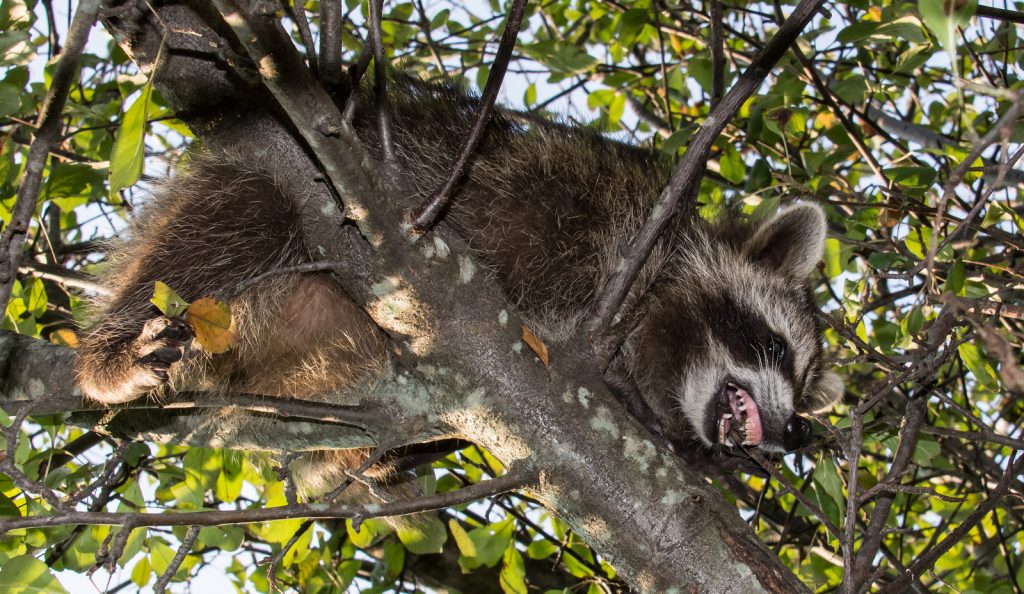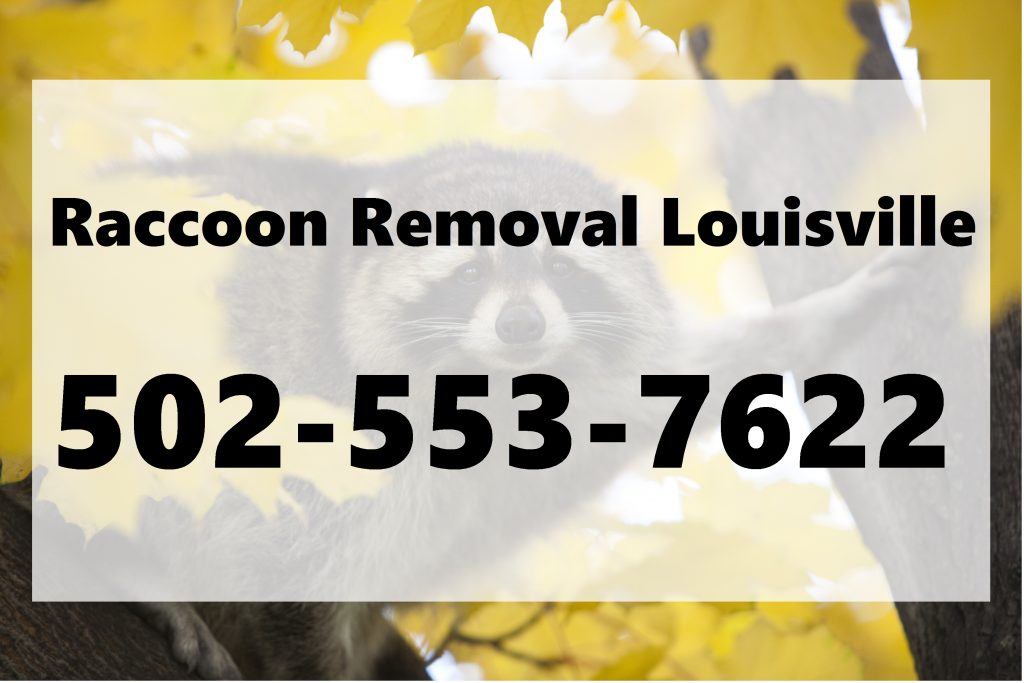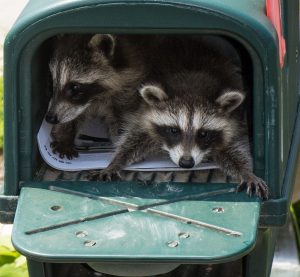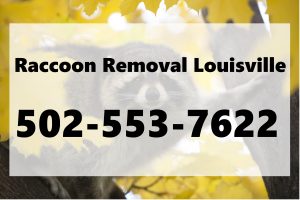One of the biggest concerns among homeowners who frequently spot raccoons on their property is the risk of being exposed to Rabies. This is a reasonable concern considering raccoons are common carriers of the rabies virus. To put your mind at ease, it helps to learn what a rabid raccoon looks like. In turn, this knowledge will help you keep your family and pets safe from the potential of exposure.
Continue reading to review a basic description of how a rabid raccoon appear and behaves, and keep these markers in mind the next time you see an animal acting strangely.

The Rabies Virus
The Rabies virus is serious because it is usually fatal. Rabies is transmitted through blood, saliva, and other bodily fluids. This means a bite, scratch, or simple mix of fluid can pass the virus onto another host, just like the common cold. Once infected, rabies travels directly to the brain, where it causes inflammation (encephalitis), and ultimately, death. Unfortunately, there is no cure for the Rabies virus once a person or pet is infected.
Rabid Raccoon Signs
Because Rabies affects the central nervous system, it is generally easy to identify through mere observation. Following incubation of the virus, a raccoon will enter an initial period of unusual behavior known as the prodromal stage. The most common sign during this stage is a raccoon active during daytime hours.
Within a few days, signs begin to appear more evident and severe. Raccoons may display very aggressive behavior, just as hissing and barking. They may also display non-aggression behavior, such as drooling, lethargy, and paralysis.
Other common signs of a rabid raccoon include dilated pupils, confused behavior, wobbly stance, difficulty walking or standing, and other types of lost coordination. Once a rabid raccoon enters a state of paralysis, they do not have much longer to live. In this state, they may appear like they are sleeping because they are breathing, but not moving a muscle.
Some additional animals that can carry and transmit rabies include bats, skunks, and fox. Be sure to keep a safe distance from these species as well. And also be sure to keep your pets vaccinated against Rabies and other transmissible diseases.
Louisville Raccoon Removal and Control

Call 502-553-7622 for DNR licensed Louisville raccoon removal and control services that are both safe and humane. We never harm or kill raccoons, and neither should you! Instead, enlist the services of our licensed wildlife rescue contractors for non-lethal raccoon exclusion and control. Request a free estimate, today.


